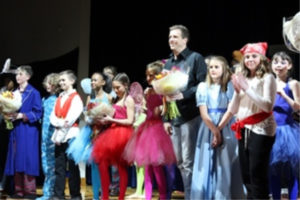 I attended a party not so long ago and, as normally occurs, I entered into a conversation about education. During the conversation, the gentleman with whom I was speaking made a very common statement, “We need to do a better job of preparing our children for the real world.” As the gentleman continued, I looked over his shoulder at my three sons and wondered in which world they were living if they indeed were not living in the real one.
I attended a party not so long ago and, as normally occurs, I entered into a conversation about education. During the conversation, the gentleman with whom I was speaking made a very common statement, “We need to do a better job of preparing our children for the real world.” As the gentleman continued, I looked over his shoulder at my three sons and wondered in which world they were living if they indeed were not living in the real one.
Now I certainly realize that the gentleman was conveying the conventional idea that some portion of our young men and women entering today’s workforce are ill-prepared to demonstrate and manage the various skills, work-ethics, and values needed to succeed. I am not sure that I agree with that sentiment; however, that is not the point of this particular blog entry. Instead, I would like to explore why expressing this view out loud and in front of children may do more harm than good.
Recently, my eldest son and his classmates prepared for four months for their sixth-grade musical. They auditioned, they memorized lines, they learned choreography, they gave up weekends, they disagreed with each other, they argued, they solved problems, they overcame fears, and in the end, they put on two fantastic productions of their musical. This was very real to them. This was their “real world.”
Even if you took away all of those wonderful lessons they learned through the process, this experience for them was beautiful and memorable and should be given the importance as something very, very real. I believe the words we choose to use are important and that both children and adults are affected by them. So when we consistently refer to the years after college or high school as the “real world” we are certainly making a dispiriting statement about all those years and experiences leading up to the “real world” years.
I think that through our actions and our words, we need to show our children that what they do today matters–not just as preparation for tomorrow–but it matters because the experiences are real, no matter one’s age.








